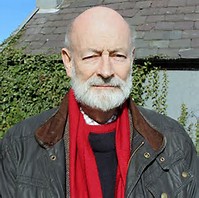
“To teach how to live without certainty, and yet without being paralysed by hesitation, is perhaps the chief thing that philosophy, in our age, can still do for those who study it.” So wrote Bertrand Russell in his History of Western Philosophy in 1946. For Russell philosophy itself dwelt in the uncertain, uncomfortable position between the certain dogmas of theology and the relatively firm empirical ground of science. It may seem odd to write about uncertainty at a time when we seem to be more certain of our political and moral beliefs than ever. One is either a Brexiteer or a Remainer, a pro-lifer or pro-choicer, and individualist or a communitarian and so on and on – and ne’er the twain shall meet. And yet there is also a sense in which this apparent certainty is a cover for a deep-rooted uncertainty without having the inconvenience of having to think too much.

Even Russell wasn’t immune from diving for cover in the form of Descartes’s homunculus or, as Gilbert Ryle put it derogatively his Concept of Mind the ‘ghost in the machine’. In The Problems of Philosophy Russell wrote: “Ultimately one has to come down to a sheer assertion that one does know this or that – eg one’s own existence.” And according to Mary Midgley in her remarkable book Wisdom, Information and Wonder this was the method recommended by Descartes. “Russell’s faith in this approach never faltered, however, and he regarded philosophers who moved away from it with a certain mystified disgust,” writes Mary Midgley, who was one of the quartet of great female philosophers along with Iris Murdoch, Philippa Foot and Elizabeth Anscombe. Rather than questioning everything, as he claimed he was doing, Russell ‘sat very firmly on a particular set of assumptions which dictated just what he was and was not going to question, and which determined also the form of the question’.

For Midgley our society has been captured by this solipsistic notion that there is an entity trapped inside a metaphysical cage and from which we have to find a way of escaping. For Descartes and Bishop Berkeley the escape was provided by God. For Kant it was us who effectively created the objective manifold around us – and any knowledge of the world-in-itself was for ever beyond our ken. Meanwhile Schopenhauer, following on from Kant, opened his magnum opus The World as Will and Representation with the words: “The world is my representation.”

In his epigrammatic work Tractatus logico-philosophicus Wittgenstein took a similar position. But by the time of his Philosophical Investigations he had completely flipped, acknowledging that we could not have had a concept of the Self in the first place unless we already thought of it as part of the outside world – thus, in one bound, escaping solipsism. And, as Midgley writes: “Certainly, too, we would have no language to speak of it (the world) if we did not conceive those others as able to communicate like ourselves, and living in a public world which could be communicated about.” Further, Descartes’s ‘I think, therefore I am’ is not ‘basic at all. It could not be because it is expressed in language’. And as Prof Raymond Tallis – who has endorsed the work of Salisbury Democracy Alliance (SDA) – writes in the latest edition of Philosophy Now: “When I tell you that no-one exists apart from myself, this is not a logical contradiction – rather, the very act of my asserting it to you makes sense only if what I assert is untrue.”

Meanwhile, in a passionate plea for for communitarianism and against the bleak solitude of the caged Self, Midgley writes: “From the deepest roots of our experience, we are social beings directly inhabiting the world, members of a community and of a species whose faculties have all evolved to fit them for a wide physical and social context, not solitary astronauts.”
And in a section that has particular relevance to today’s divisions, tribal thinking and social media echo chambers, she writes: “Moving away from Cartesianism, we may suggest that theoretical disputes as well as practical ones are best settled, not from on high, but by peaceful negotiation between the parties involved, with background help and advice from outside observers.” It’s a sentiment that could be set as a preamble for the justification of Citizens’ Assemblies, for which SDA is campaigning.
I once had a go at reading Russell and Whitehead’s Principia and I got to page 80 I think before giving up!
LikeLiked by 1 person
Hi Peter, I’ve never even attempted to read the Principia only the History of Western Philosophy and The Problems of Philosophy. If you haven’t read Mary Midgley’s book it’s well worth it. Prof Raymond Tallis actually knew her.
LikeLiked by 1 person